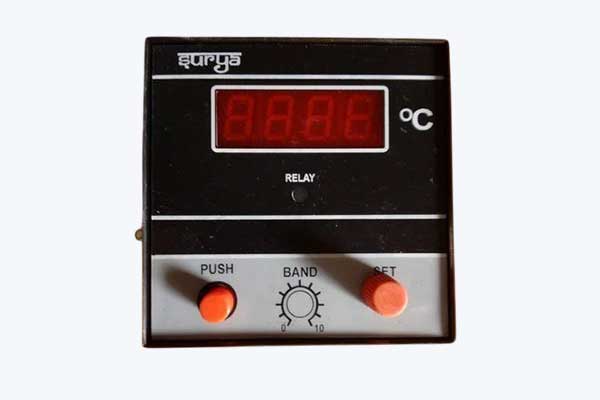
A Temperature Controller is an intelligent device used to maintain and regulate the temperature of a system or process. It receives input from a temperature sensor (such as an RTD or thermocouple), compares it with the setpoint, and controls the output to heating or cooling devices accordingly. Available in On-Off, Proportional, and PID (Proportional-Integral-Derivative) variants, temperature controllers are critical in maintaining precision, safety, and efficiency across numerous industrial applications.